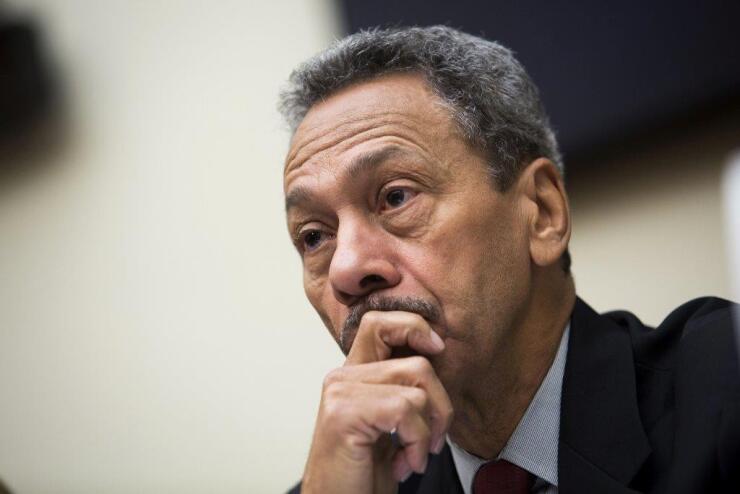WASHINGTON — As the Senate launched into debate on tax reform Wednesday, a still-unanswered question was whether lawmakers will address a potentially huge negative consequence for Fannie Mae and Freddie Mac.
Banks and other financial institutions have cheered the proposal to lower the corporate tax rate from 35% to 20%, and support of the bill by key Republicans has seemed to increase the odds of passage lately.
Yet Fannie and Freddie observers are warning that a reduced rate will hit the government-sponsored enterprises hard. At issue are the GSEs' tax-deferred assets that rise and fall in value based on corporate tax rates. Some have warned that the plan could result in losses in the tens of billions. With the companies already required to sweep their profits to the government, write-downs of tax-deferred assets could make an already worrisome capital situation worse.

Fannie and Freddie “will lose roughly a billion dollars for every percentage reduction in tax assets and would trigger a draw in that amount” from the Treasury if the corporate tax rate is lowered as proposed, said Michael Calhoun, president of the Center for Responsible Lending.
GOP lawmakers, who have steered tax reform through without Democratic support or involvement, have been mostly mum on the issue. Yet the potential for the GSEs to suffer losses from the plan was raised by Federal Housing Finance Agency Director Mel Watt.
“We ... know that a short-term consequence of corporate tax reform would be a reduction in the value of the enterprises' deferred tax assets, which would result in short-term, non-credit- related losses to the Enterprises,” Watt told the Senate Banking Committee in May.
Following the mortgage meltdown, Fannie and Freddie were able to write down losses that they could use to reduce future tax obligations. However, those write-downs were conducted using the 35% corporate tax rate. Lowering the rate means a one-time reduction in the value of those assets.
Analysts' estimates vary, but some say lowering the corporate tax rate to 20% could mean a $20 billion combined hit for the GSEs. Some have pegged the losses as high as $30 billion.
As part of an agreement with the Treasury Department, Fannie and Freddie have a $258 billion line of credit with the Treasury that they can draw on if they suffer losses. However, the two GSEs also send their profits to Treasury, reducing their capital buffers. Those buffers will hit zero by next year, increasing the risk of a draw, independent of the impact of tax reform. But losses spurred by a lower tax rate could enlarge the draw.
“You can explain that as an accounting technicality, but it is still a draw with cash going from the Treasury to the GSEs,” Calhoun said.
Some financial services lobbyists are urging lawmakers to find a solution to the GSE issue, warning that forcing Fannie and Freddie to have to seek more government support could be seen as another bailout.
"Small lenders don't want a new taxpayer bailout, and frankly there's no upside for Republicans to be the Party of New Taxpayer Bailouts either," said a lobbyist for small lenders, who spoke on the condition of anonymity.
The GSEs themselves have raised the issue in recent securities filings.
"If legislation significantly lowering the U.S. corporate income tax rate is enacted, we expect to incur a significant net loss and net worth deficit for the quarter in which the legislation is enacted and we could potentially incur a net loss for that year,” Fannie Mae said in a recent filing.
Freddie similarly noted in a recent filing that "a reduction in corporate tax rates would require us to measure our net deferred tax asset using the new rate in the period in which the rate change is enacted."
"This would result in a one-time charge through the tax provision,” the company said.
But Charles Gabriel, an analyst at Capital Alpha Partners, said a draw on the Treasury from tax reform pales in comparison politically to failing to pass a tax reform bill.
“Tax bill passage is an existential mission,” Gabriel said. “Lower corporate rates have been a Trump red line.”
Lawmakers could potentially make a last-minute carve-out for the GSEs, but Gabriel said some lawmakers may welcome a draw as a catalyst to jumpstart broader housing finance reform discussions. Others might view the effects of tax reform on GSEs merely as a “quirky, unintended consequence,” he said.
Whether a draw will occur if Congress passes tax reform appears to be a fairly straightforward proposition.
Gordon Gray, director of fiscal policy at the American Action Forum, called a write-down of the tax-deferred assets a “plain understanding of what [Fannie and Freddie’s] relationship with the Treasury is as it relates to their balance sheet.”
“It is a financial recognition of these things living inside the financial budget,” Gray said.
Meghan Milloy, who is director of financial services policy at American Action Forum, said that, while there may be a draw in the short term, it is also possible Fannie and Freddie could quickly repay the Treasury.
“If they keep up their rate of profitability … theoretically they could make that back up,” Milloy said.





